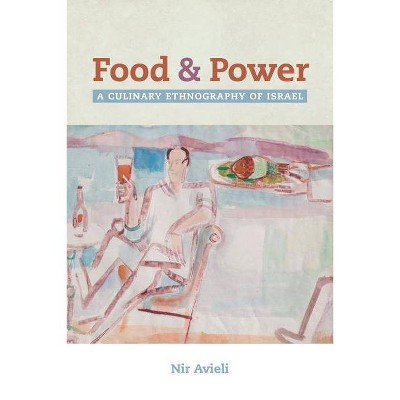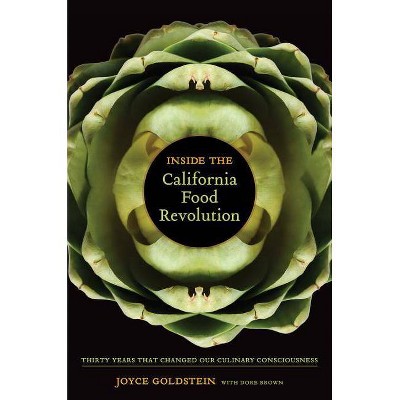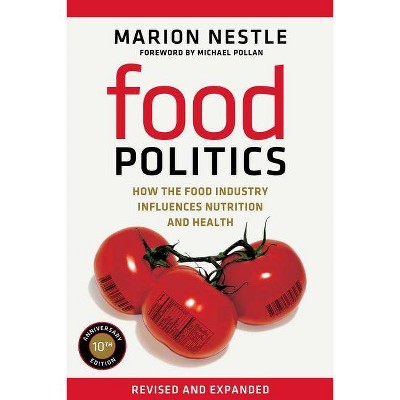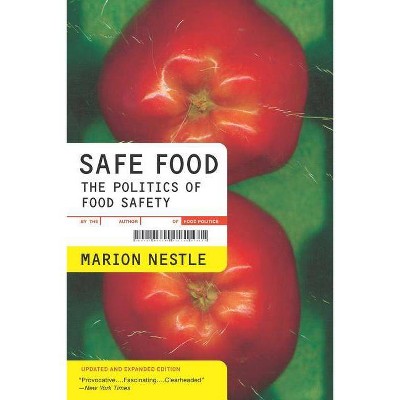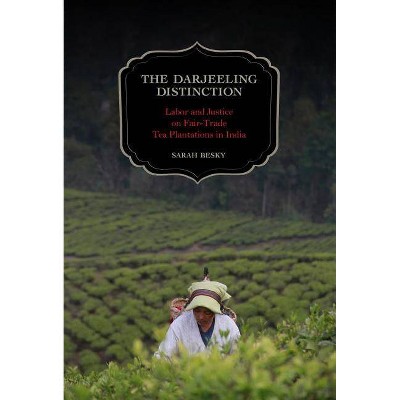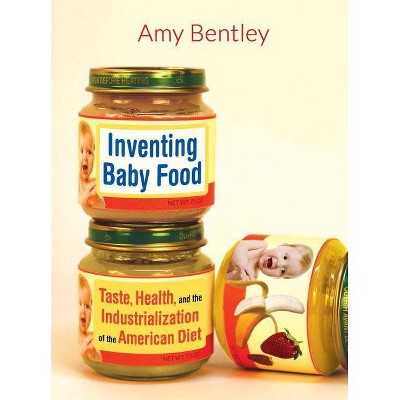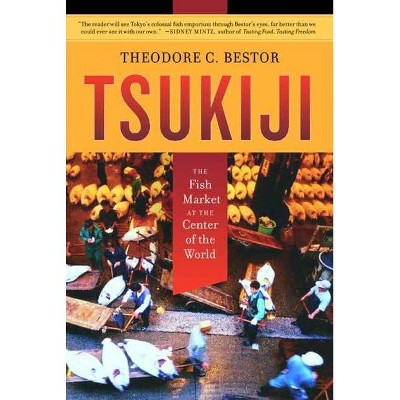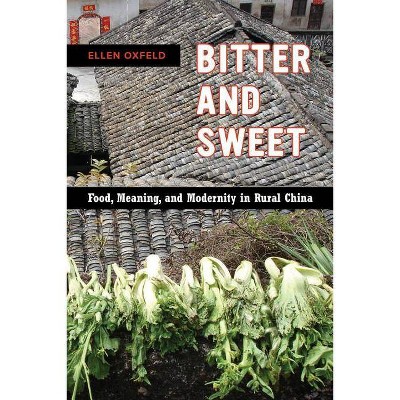Feeding the Crisis, 71 - (California Studies in Food and Culture) by Maggie Dickinson (Paperback)
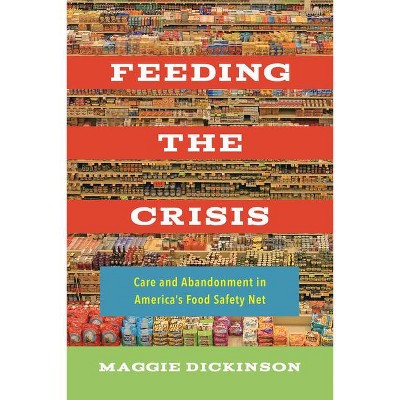
Similar Products
Products of same category from the store
AllProduct info
<p/><br></br><p><b> About the Book </b></p></br></br>"The Supplemental Nutrition Assistance Program (SNAP), formerly known as food stamps, is one of the most controversial forms of social welfare in the United States. Despite the common belief that such federal programs have been cut back since the 1980s, Maggie Dickinson charts the dramatic expansion and reformulation of the food safety net in the 21st century. Today, receiving SNAP benefits is often tied to work requirements, essentially subsidizing low-wage jobs. Excluded populations--from the unemployed to informally employed workers to undocumented immigrants--must rely on charity to survive. Feeding the Crisis tells the story of eight families as they navigate the terrain of an expanding network of food assistance programs where care and abandonment work hand in hand to regulate people on the social and economic margins. Amid calls at the federal level to expand 'work for food' requirements for food assistance, Maggie Dickinson shows us how such ideas are bad policy that fail to adequately address hunger in America. Feeding the Crisis brings the voices of food insecure families into national debates about welfare policy, offering fresh insights into how we can establish a right to food in the United States"--<p/><br></br><p><b> Book Synopsis </b></p></br></br>The Supplemental Nutrition Assistance Program (SNAP), formerly known as food stamps, is one of the most controversial forms of social welfare in the United States. Although it's commonly believed that such federal programs have been cut back since the 1980s, Maggie Dickinson charts the dramatic expansion and reformulation of the food safety net in the twenty-first century. Today, receiving SNAP benefits is often tied to work requirements, which essentially subsidizes low-wage jobs. Excluded populations--such as the unemployed, informally employed workers, and undocumented immigrants--must rely on charity to survive. <p/><i>Feeding the Crisis</i> tells the story of eight families as they navigate the terrain of an expanding network of assistance programs in which care and abandonment work hand in hand to make access to food uncertain for people on the social and economic margins. Amid calls at the federal level to expand work requirements for food assistance, Dickinson shows us how such ideas are bad policy that fail to adequately address hunger in America. <i>Feeding the Crisis</i> brings the voices of food-insecure families into national debates about welfare policy, offering fresh insights into how we can establish a right to food in the United States.<p/><br></br><p><b> From the Back Cover </b></p></br></br>"Maggie Dickinson has written a wonderful book that grasps the essential features of our restructured social policies and provides a ground-level view of what the new workfare policies mean in the lives of the many people enmeshed in them."--Frances Fox Piven, author of <i>Challenging Authority </i>and coauthor of <i>Regulating the Poor </i>and <i>Poor People's Movements</i> <p/> "More than two decades after the publication of Janet Poppendieck's groundbreaking <i>Sweet Charity?</i>, Dickinson updates and brings additional complexity to an analysis of the impoverished state of the American food safety net. The ethnographic moments are engaging and moving; the arguments smart and nuanced. <i>Feeding the Crisis</i> is a highly teachable book!"--Julie Guthman, author of <i>Weighing In: Obesity, Food Justice, and the Limits of Capitalism</i> <p/> "This is an incredibly important book. It not only offers a study of food assistance programs in the wake of both the 1996 welfare reform and 2008 financial crisis, but also ties its primary concern with hunger to thinking about the nature of formal and informal work, broader changes in the economy, and the gendering of paid and care work."--Alison Hope Alkon, author of <i>Black, White, and Green: Farmer Markets, Race, and the Green Economy</i><p/><br></br><p><b> Review Quotes </b></p></br></br><br>"<i>Feeding the Crisis</i> is an essential read for anyone interested in nutrition, hunger, <br> and labor policy in America."-- "Review of Agricultural, Food and Environmental Studies"<br><br>"<i>Feeding the Crisis</i> offers compelling and important contributions to the anthropology of work, highlighting the urgent need for both scholars and policymakers to understand how food access and the broader emergency food system are connected to the labor market, welfare reform, and public health interventions."-- "Exertions"<br><br><p>"<i>Feeding the Crisis</i> offers compelling and important contributions to the anthropology of work, highlighting the urgent need for both scholars and policymakers to understand how food access and the broader emergency food system are connected to the labor market, welfare reform, and public health interventions."</p>-- "Exertions"<br><br>"Timely and important. . . . [The book's] main strength lies in its clarity in characterizing America's food safety net for a broad audience, making it an excellent text for those working in NGOs and policy making in the fields of social assistance, poverty and social exclusion."-- "Anthropology Book Forum"<br><br>"Dickinson's engrossing, clear and important contribution to the study of comparative welfare reform points to an urgent need to expand the range of options that are politically thinkable in the present."-- "PoLAR: Political and Legal Anthropology Review"<br><p/><br></br><p><b> About the Author </b></p></br></br><b>Maggie Dickinson</b> is Assistant Professor of Interdisciplinary Studies at the City University of New York's Guttman Community College. <br>
Price History
Cheapest price in the interval: 29.99 on October 22, 2021
Most expensive price in the interval: 29.99 on December 20, 2021
Price Archive shows prices from various stores, lets you see history and find the cheapest. There is no actual sale on the website. For all support, inquiry and suggestion messages communication@pricearchive.us
